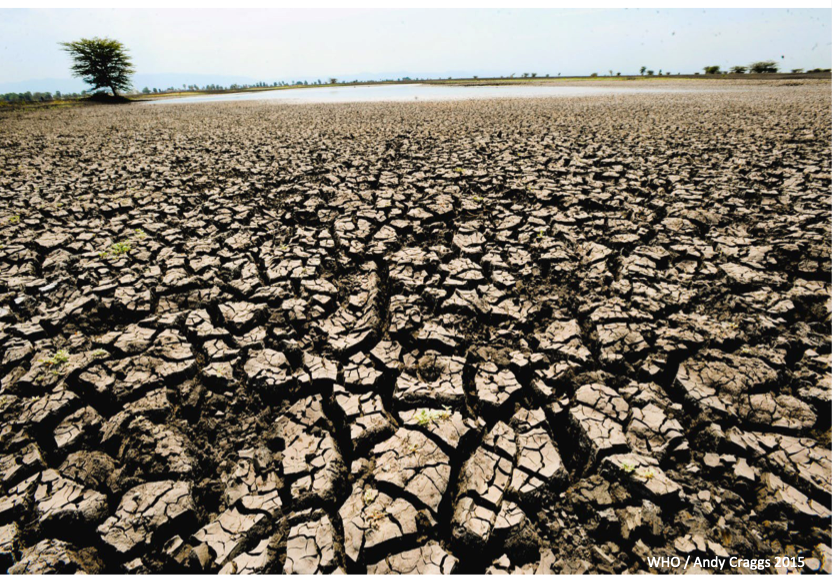

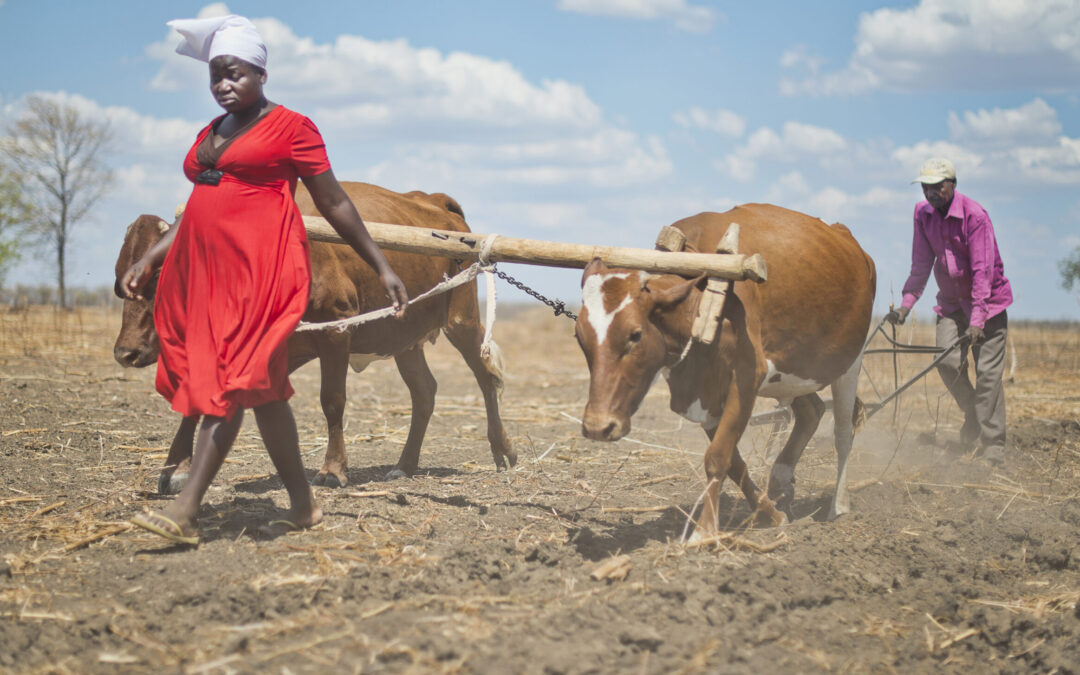
Health Emergency Preparedness & Response at the Onset of El Niño
Supporting Ministries of Health and Partners to Deliver Coordinated RCCE in the East & Southern Africa Region.
By Maureen McKenna, Advocacy Advisor, Collective Service
While the first Africa Climate Summit concluded last month where African governments and donors committed to aggressive steps and funding toward climate change action across the Africa Union, climate change is already knocking on the door of the most vulnerable communities across the continent.
The El Niño season, which began in June this year, is significantly impacting a wide range of already-existing health emergencies and humanitarian disasters in multiple regions across Africa, especially the East and Southern Africa Region (ESAR). The event will continue to significantly impact the region into early 2024. This year’s El Niño event is likely to have additional health implications throughout ESAR and will increase the effects that the rainy season will have on current health emergencies, including the worst cholera outbreak in over 20 years. According to WHO, “heavy rainfall and flooding, often leading to increased water contamination, will likely exacerbate and further prolong this outbreak in many countries. Flooding will also provide ideal conditions for mosquito multiplication and the emergence and/or exacerbation of Rift Valley Fever (RVF) and malaria…”1
Recent health emergencies including record outbreaks of cholera, especially in Malawi, and EVD in Uganda, for example, have demonstrated that collective and coordinated approaches to community engagement during public health emergencies and humanitarian response have decreased the impact of disease outbreaks on communities. Lessons learned during the COVID-19 response, a major topic of the upcoming 2023 World Health Summit, have enabled initiatives like the Collective Service to be prepared and have the services and coordination mechanisms in place for the delivery of Risk Communication and Community Engagement (RCCE) to the most vulnerable and hard to reach communities.
As a new global architecture for health emergency preparedness, response, and resilience (HEPR) unfolds, and governments work toward “protecting all people from climate disasters with early warning systems”2 as a part of the Climate Action Acceleration Agenda, it is clear there is a need for coordinated RCCE services and tools to ensure communities are prepared for impending health emergencies and climate-related disasters, including emergencies that are currently emerging from the El Niño event.
The Collective Service is already answering the call from Ministries of Health and/or partners from 14 countries (Somalia, South Sudan, Ethiopia, Kenya, Uganda, Tanzania, Burundi, Malawi, Zambia Mozambique, Eswatini, Malawi, Madagascar, and Namibia) for support to prepare communities for impending health emergencies likely to be caused or exacerbated by El Niño.
To help countries in ESAR prepare for and respond to the impact of El Niño, the Collective Service will build the capacity of governments and partners at national and sub-national levels to enable the delivery of coordinated RCCE services through strengthened community feedback mechanisms, operational social science training and support, and shared data intelligence and analysis. With these capacities and tools in place, governments and partners in countries throughout the region will have the ability to collect critical community data regarding communities’ perceptions and beliefs to promote health-seeking behaviors and guide the design of early action health strategies and support communities to mitigate and adapt. During a health emergency, this information will help partners to identify service delivery gaps in communities, and they will be able to develop an informed response for improved health-seeking behaviors.
In addition to country surge support provided to MoH and partners, the Collective Service also provides a repository of tools and services for practitioners and responders regarding RCCE and CEA for health emergencies related to the El Niño event, including the following:
- Remote on-demand RCCE and CEA technical assistance and support is available through the Collective Service Helpdesk.
- Social Science Training is available for the effective integration of social science in health emergency interventions and policymaking.
- RCCE & CEA resources and tools for responding to cholera.
- RCCE & CEA resources and tools for responding to drought.
- Measuring Results in Social Behaviour Change Communication Programming
- Communicating with Communities in Epidemics… RCCE Readiness Kit
The Collective Service welcomes partners to share additional tools and resources, which can be posted on the Collective Service website for distribution, by sending them to the Collective Service Global Coordinator [diane.lecorvec@ifrc.org].
Please join the next Collective Service Global Call for the most up-to-date information on the RCCE response in the East & Southern Africa Region.
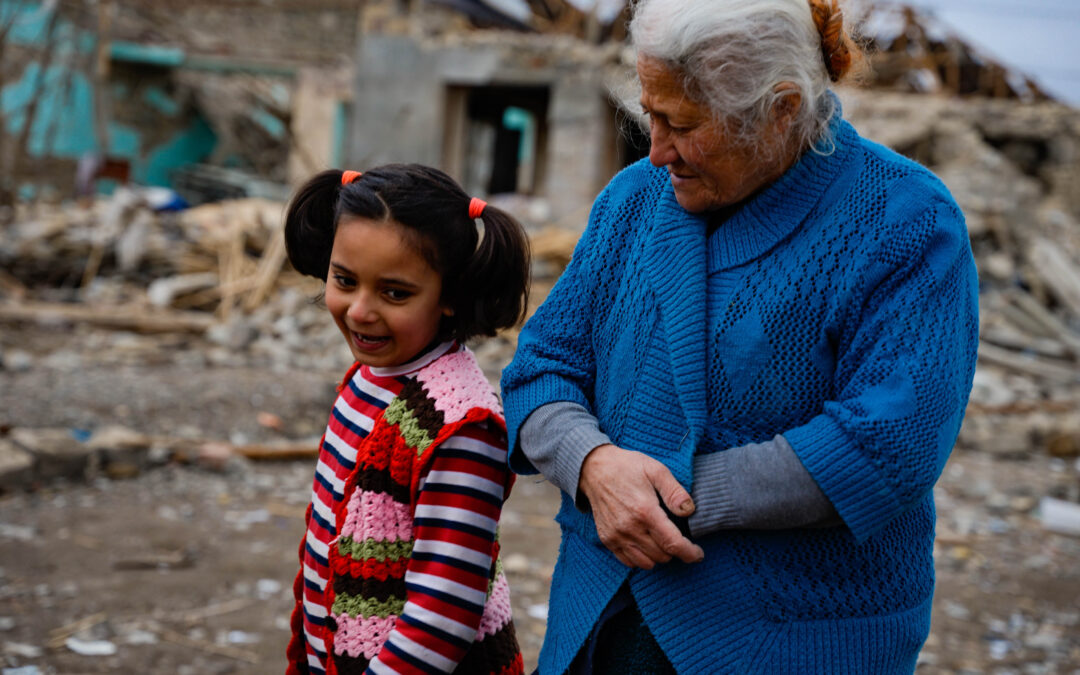
People-centric humanitarian response in conflict: strategies, insights and dilemmas
The International Committee of the Red Cross (ICRC), in collaboration with the United Nations Office for the Coordination of Humanitarian Affairs (OCHA), hosted a public learning event aimed at challenging our thinking and approach to the concept of ‘Accountability to Affected People’ in conflict settings.
Organized over three days, from 12th to 14th September 2023, the event aspired to stimulate thought-provoking dialogue, innovation, and collaborative problem-solving within the sector, focusing on both significant paradigm shifts as well as tangible, actionable solutions.
ICRC has made available the recording of each conference on its website. Here is a reminder of the conference thematics and access the event replay here:
Day 1
- Opening session: people, principles and processes
- ‘Do no harm’ and other mantras: do they help or hinder humanitarian action?
- The measure of dignity
- Nothing about us without us: disability inclusion in conflict
- Images of crisis: Ethics and responsibility in humanitarian communication
Day 2
- Will the humanitarian sector survive climate change?
- Protection work with and for communities affected by conflict
- People in conflict as data subjects and the role of humanitarians
- Information as aid AND as a vector for harm
Day 3
- Well-being: towards a more meaningful response in conflict settings?
- Navigating the spirit and letter of people centric
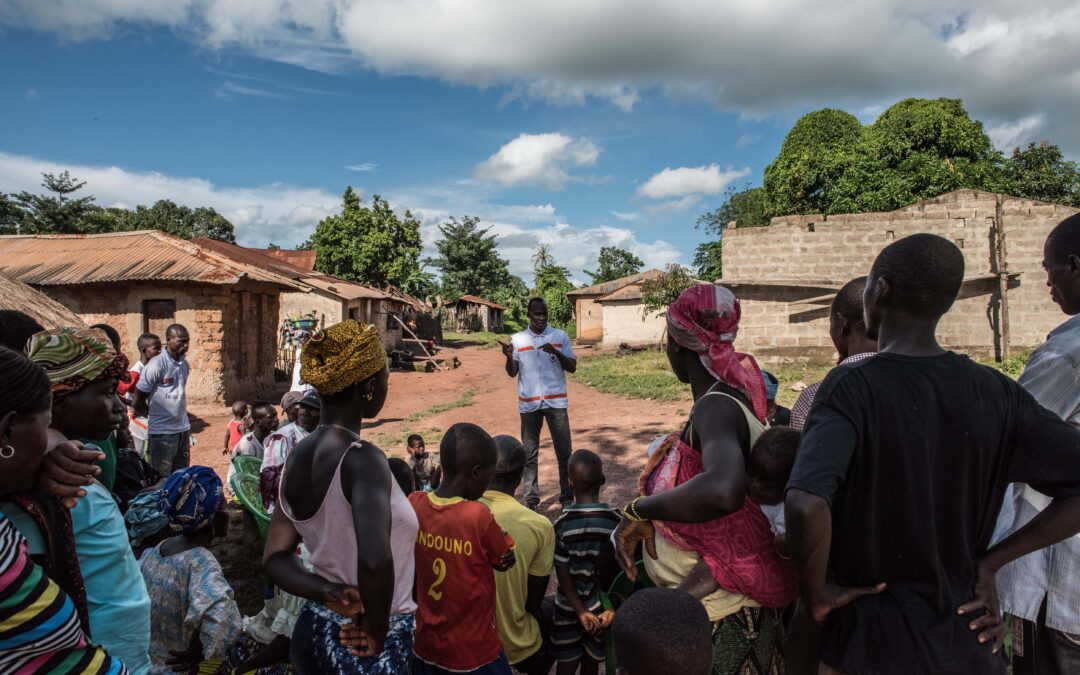
Guinea: community engagement and accountability impact research
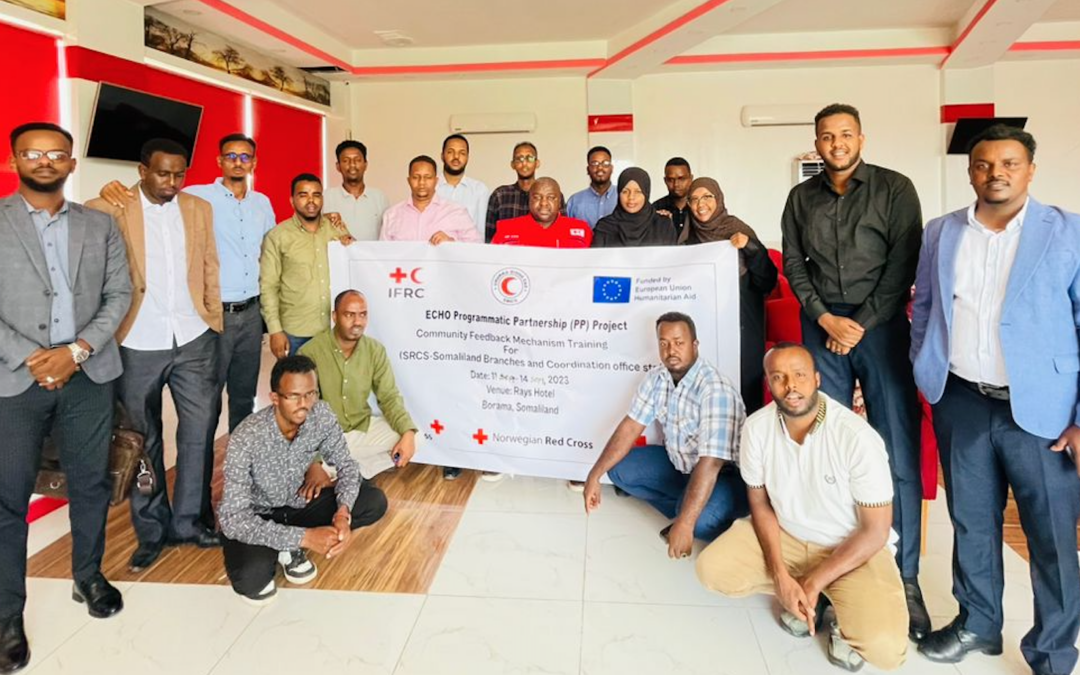
Somalia and Somaliland Country Support: Strengthening Community Feedback Mechanism (CFM)
The Collective Service (CS) has been implementing the recommendations of the East and Southern Africa (ESAR) Risk Communication and Community Engagement (RCCE) Technical Working Group (TWG) by providing technical support to response partners for RCCE coordination, community feedback mechanisms (CFM), social science, and information management upon request from countries in ESAR.
Somalia, one of the countries requesting support from The Collective Service, has been experiencing a protracted complex emergency over the last 25 years due to recurrent conflict, drought, floods, and food insecurity 1. An anticipated El Niño climate event has the potential to negatively affect approximately 1.2 million people in Somalia this year. Thousands of Somalis are currently at risk of contracting communicable diseases 2. The country has had uninterrupted cholera transmission in 29 drought- affected districts since 2022 and in Banadir region since the drought of 2017. Cholera continues to be the major public health risk in the country with a new cluster of cases confirmed in Burhakaba district in August 2023 3.
Somalia Support Mission Objectives
In the context of multiple emergencies in the region and the anticipated impact of El Niño, Somalia and Somaliland authorities have requested preparedness and response support from The Collective Service through the UNICEF Country Office. The Collective Service will provide support to partners to consolidate the Community Feedback Mechanism (CFM) and Accountability to Affected People (AAP) coordination processes.
Through the coordinated collection and analysis of social behavioural data into a community feedback mechanism, The Collective Service will support local partners to understand the social and behavioral factors in a community that are impacting the uptake of health-seeking behaviours, how to collect and assess this social behavioural feedback and data from communities using tools and strategies, and how to use this information and data to advocate for community needs and services.
Ngonidzashe Nyambawaro, the Regional Surge Coordinator focal point for The Collective Service, has been providing assistance to RCCE partners to strengthen community feedback tools and processes. Additionally, Ngonidzashe has conducted training sessions for key national focal persons on CFM and has offered support for piloting these tools. This effort builds upon the initial remote technical support provided over the past three months.
On-going Series of Trainings
Borama, Somaliland training – Ngonidzashe recently facilitated a training session for Somaliland Red Crescent Society (SRCS), in Borama. The 45 participants were from the National Society Coordination office and the six administrative regions of Somaliland.
The primary objective of this workshop was to strengthen the Community Feedback System of the SRCS. The areas covered during the training included an Introduction to Community Engagement and Accountability (CEA), the Community Feedback Mechanisms cycle (data collection, cleaning and analysis, and translation of feedback into action), and the development of Standard Operating Procedures for the full CFM steps phases.
Previously CFM activities were focused on health and nutrition, and this training will facilitate the inclusion of other sectors such as Disaster Risk Reduction (DRR), Cash Voucher Assistance (CVA), Food Security, and WASH (Water, Sanitation and Hygiene).
Mogadishu, Somalia and Hargeisa, Somaliland trainings – The second series of training sessions, still facilitated by The Collective Service, has been conducted in Hargeisa and was hosted by UNICEF. These sessions included 50 participants, comprised of UNICEF partners from both areas and government stakeholders from Hargeisa. The training topics encompassed the RCCE coordination structure in humanitarian emergencies, an introduction to RCCE, CFM cycles, the translation of feedback into actionable steps, and the review of data collection tools that relevant to the specific emergency response context of Hargeisa and Mogadishu.
This week, The Collective Service team is prioritising one-on-one meetings with partners, finalising the CFM package, and piloting data collection tools in both locations. Further subnational training sessions will be implemented by the country CFM Core team to ensure that the data collection teams are well-equipped and receive continuous support to maintain the flow of data.
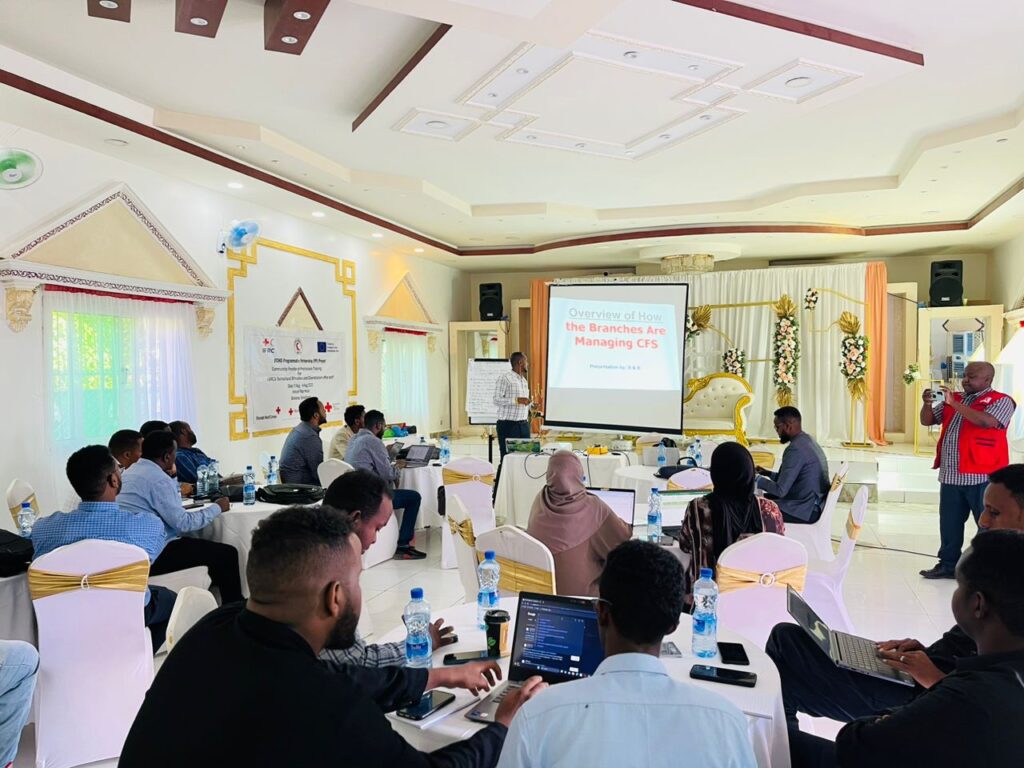
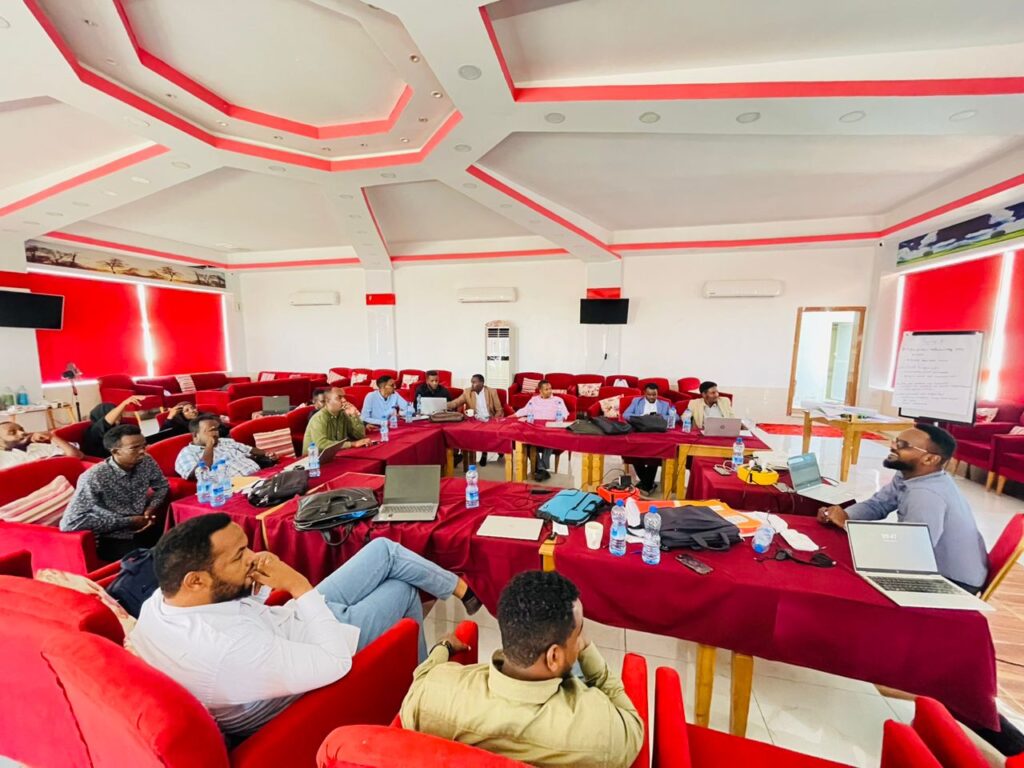
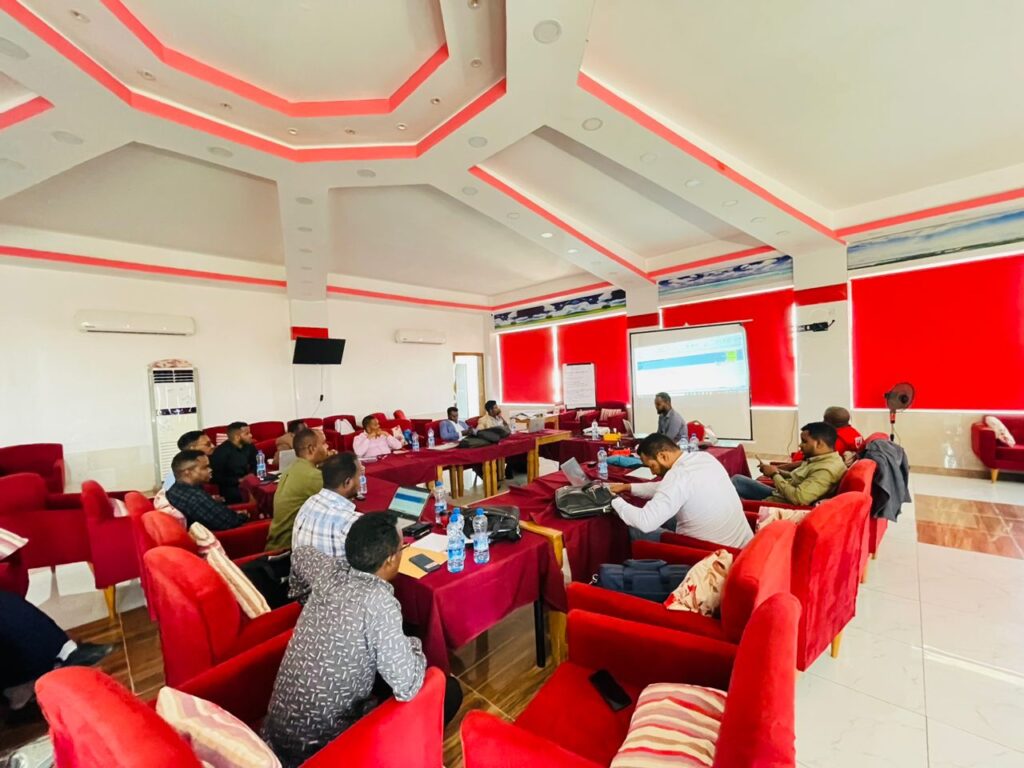
Training for Somaliland Red Crescent Society (SRCS), in Borama – September 2023
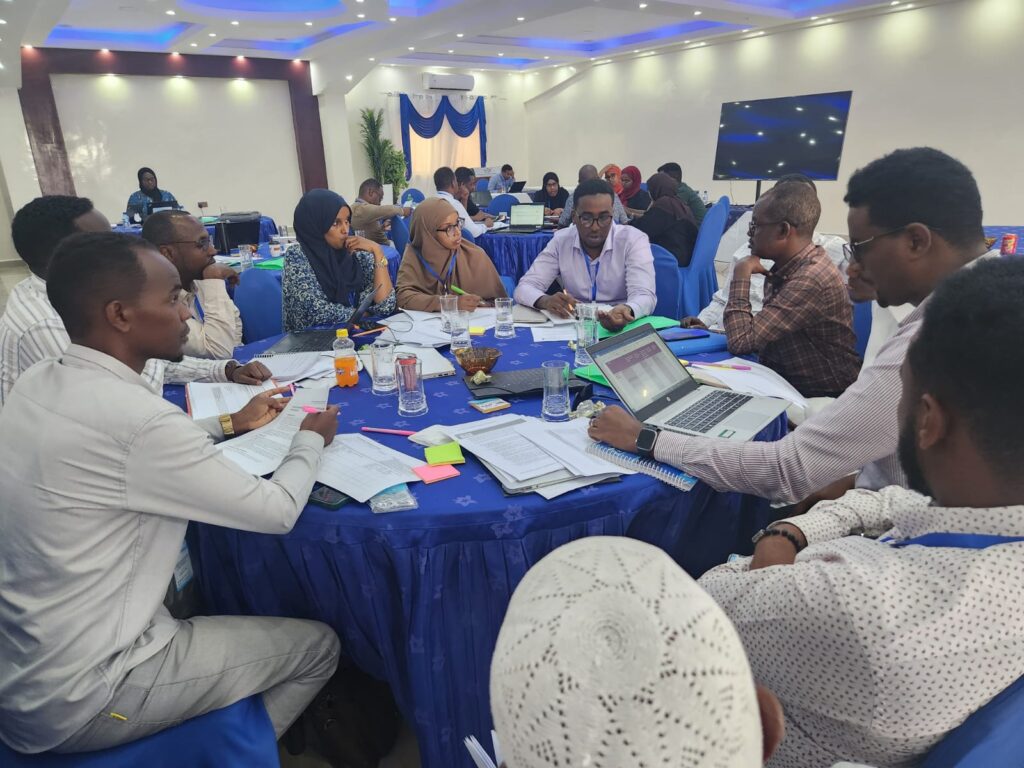
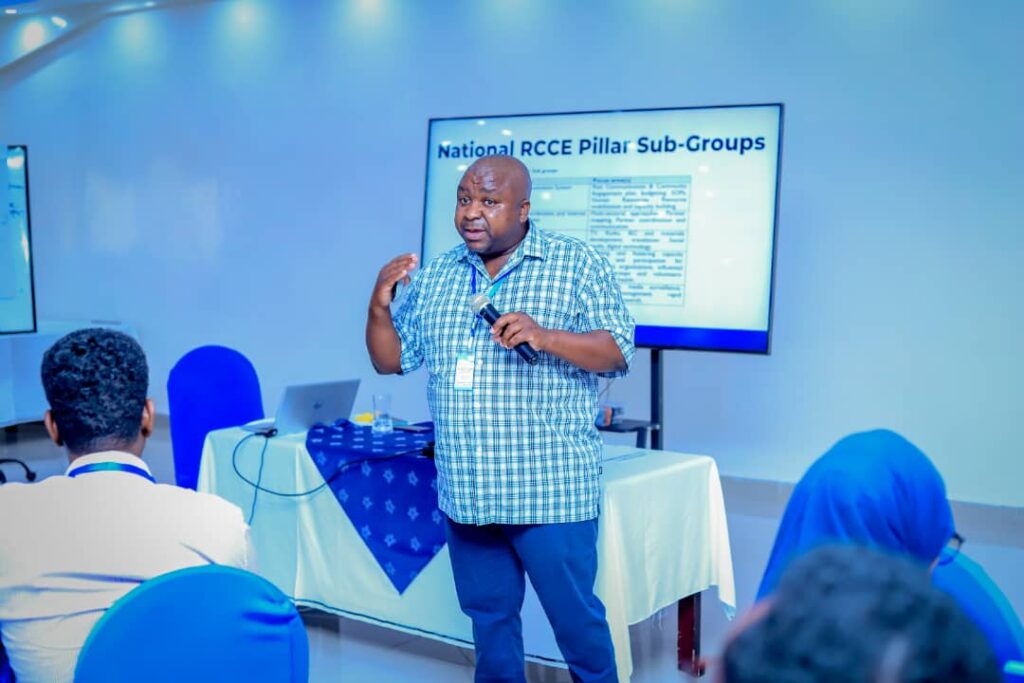
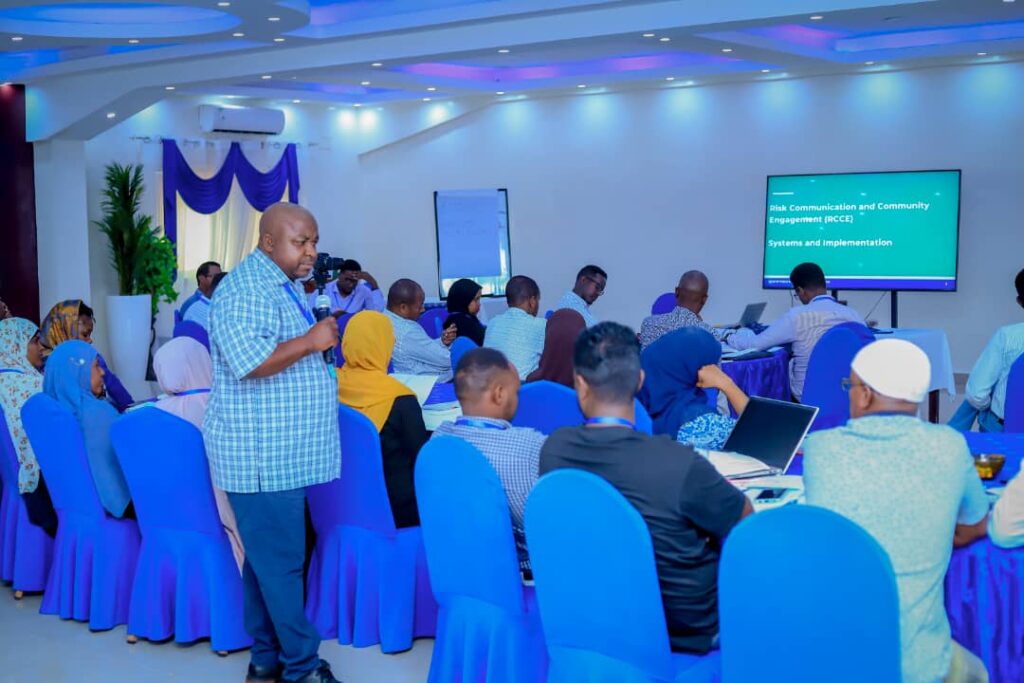
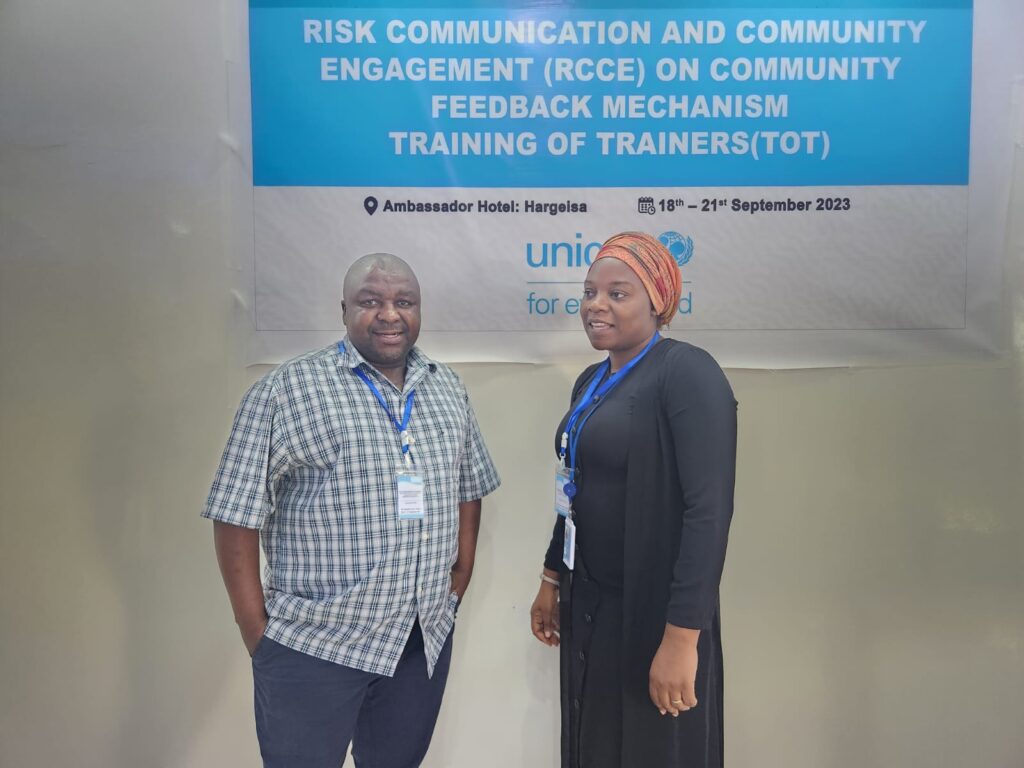
Somalia & Somaliland trainings for UNICEF and government stakeholders, in Hargeisa – September 2023
- WHO | El Niño climate phenomenon: scaling up Somalia’s cholera preparedness and response capacities |
https://www.emro.who.int/pandemic-epidemic-diseases/news/elnino-cholera-somalia.html ↩︎ - Food and Agriculture Organization of the United Nations (FAO) | Anticipating El Niño: A Mitigation, Preparedness and Response Plan (August 2023 – January 2024) | https://reliefweb.int/report/somalia/anticipating-el-nino-mitigation-preparedness-and-response-plan-august-2023-january-2024 ↩︎
- WHO | Weekly Cholera/AWD Situation Report – Somalia, Epidemiological Week 36 (4 – 10 September 2023) |
https://reliefweb.int/report/somalia/weekly-choleraawd-situation-report-somalia-epidemiological-week-36-4-10-september-2023 ↩︎

